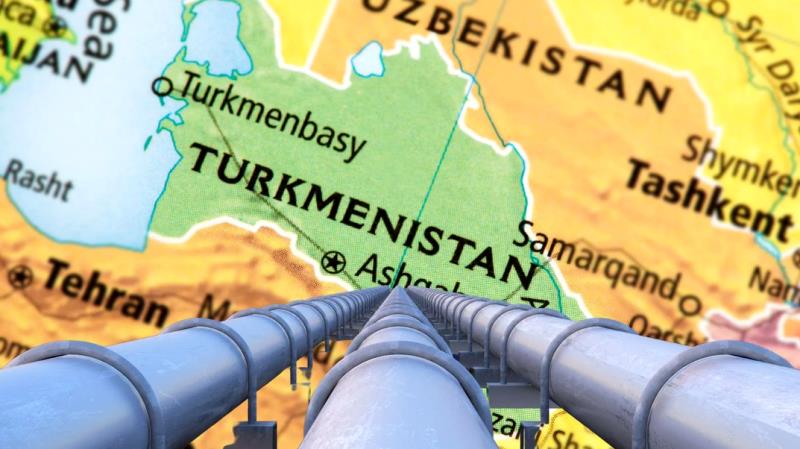
Decline In Import Of Turkmen Gas Underscores Azerbaijan's Economic Shift
In the realm of energy geopolitics, Azerbaijan's recent experience with natural gas imports from Turkmenistan highlights significant economic and strategic developments. According to recent data, Azerbaijan's import of natural gas from Turkmenistan plummeted by a staggering 49% in the first five months of 2024 compared to the same period last year. This decline underscores pivotal changes in both pricing dynamics and strategic considerations for Azerbaijan.
Between January and May 2024, Azerbaijan imported 294.8 million cubic metres of natural gas from Turkmenistan, amounting to a total payment of 44.2 million US dollars. This starkly contrasts with the corresponding period in 2023, when Turkmenistan supplied 583.5 million cubic metres and Azerbaijan paid 86.9 million dollars. The sharp decrease in both volume and expenditure signals a significant reevaluation of energy procurement strategies by Azerbaijan.
Azerbaijan's natural gas imports from Turkmenistan are facilitated through Iran, where Turkmenistan exports gas that is then transferred to Azerbaijan based on an exchange agreement established in Ashgabat in November 2021. This strategic framework, involving three regional players, highlights the intricate geopolitical balancing act in the Caspian region, with energy security and supply reliability at its core.
Initially agreed upon to supply 1.5-2 billion cubic metres annually, the gas transportation from Turkmenistan to Azerbaijan via Iran saw operational adjustments, increasing from 5-6 million cubic metres per day in early 2022 to 7 million cubic metres per day by March that year. Subsequent negotiations in June 2022 led to a doubling of annual gas supplies, further cementing the strategic ties between Iran and Azerbaijan in energy cooperation.
The economic landscape further reveals a fluctuating price scenario. Until December 2022, Azerbaijan purchased natural gas from Turkmenistan at $140 per 1,000 cubic metres. However, by May 2024, this price had escalated to $150 per 1,000 cubic metres. This upward trend in procurement costs is compounded by contrasting market conditions, particularly in Europe, where natural gas prices have shown a marked decline, significantly impacting Azerbaijan's revenue. In the first five months of 2023, Azerbaijan realised an average income of $759 per 1,000 cubic metres, contrasting starkly with a reduced $348 per 1,000 cubic metres in the corresponding period of 2024.
Looking ahead, Azerbaijan faces critical decisions regarding its energy-sourcing strategies and economic resilience amidst volatile global energy markets. The decline in natural gas imports from Turkmenistan prompts a reassessment of energy diversification policies and potential shifts towards more cost-effective and stable sources.
In conclusion, Azerbaijan's recent downturn in natural gas imports from Turkmenistan underscores broader economic and strategic recalibrations within the region's energy dynamics. As global energy landscapes continue to evolve, Azerbaijan's adaptive strategies will be pivotal in navigating uncertainties and optimising its energy security and economic stability.
Legal Disclaimer:
MENAFN provides the
information “as is” without warranty of any kind. We do not accept
any responsibility or liability for the accuracy, content, images,
videos, licenses, completeness, legality, or reliability of the information
contained in this article. If you have any complaints or copyright
issues related to this article, kindly contact the provider above.


















Comments
No comment